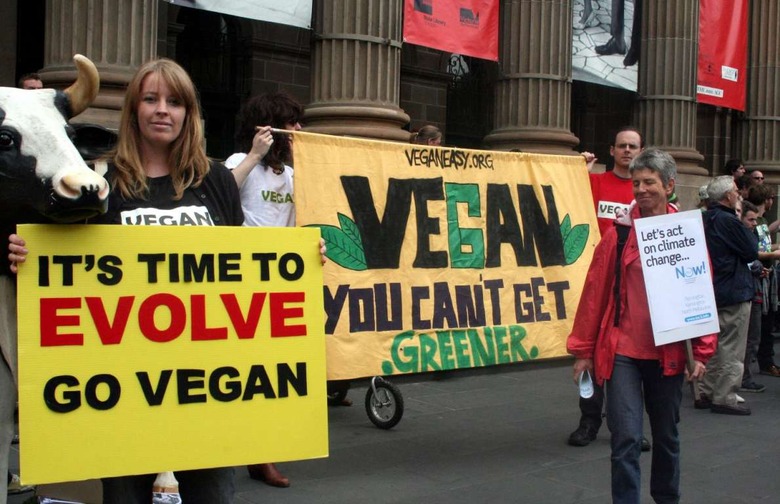New Study Reveals Vegan Diet As Not So Environmentally Friendly
Vegans often claim their diet is the best for the earth, since it avoids all products of animal husbandry. However, researchers found that though reducing intake of animal products does increase the amount of people who can be supported by existing farmland, avoiding all animal products actually is not the optimal path for sustainable land use.
The researchers used biophysical simulation models to compare 10 diets: the vegan diet, two vegetarian diets (one dairy-friendly, another dairy- and egg-friendly), four omnivorous diets (varying in amounts of meat consumed), one low in fats and sugars, and one modeled on the typical modern American diet. Then, they calculated how many people could be fed with available cropland.
On Earth, there are three types of land for producing foods. Grazing land is unsuitable for growing crops but great for feeding animals. Perennial cropland, which supports grain, hay and other year-round crops, is another type, whose produce typically feeds livestock. Finally, there is the cultivated cropland, which typically hosts vegetables, fruits, and nuts.
Of all the diets, veganism stood out because it uses no perennial cropland at all, wasting the chance to produce a whole lot of food. As a result, based on models, the vegan diet is not the best or most sustainable; rather, four diets — both vegetarian diets and two of the four omnivorous diets — would feed more people and be the more sustainable long-term choice for humanity.
So, despite what some vegans may tell you, their diet is not the epitome of sustainability — if everyone did it, a whole lot of land and the potential to produce food and feed starving people would be wasted. However, for some vegans, this is missing the point; for them, their diet is a statement against animal husbandry practices as a whole, not the environmental sustainability of the food industry.
